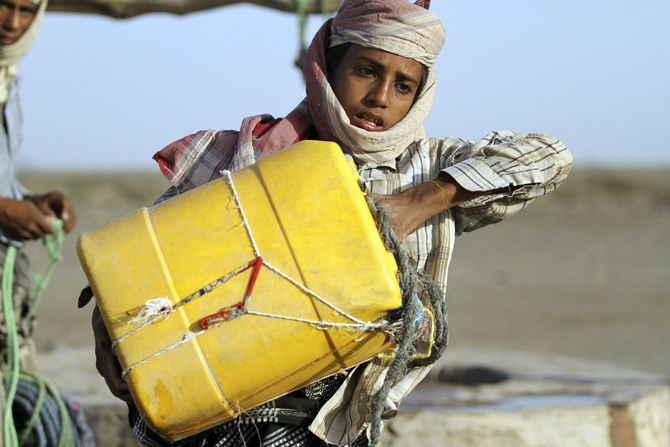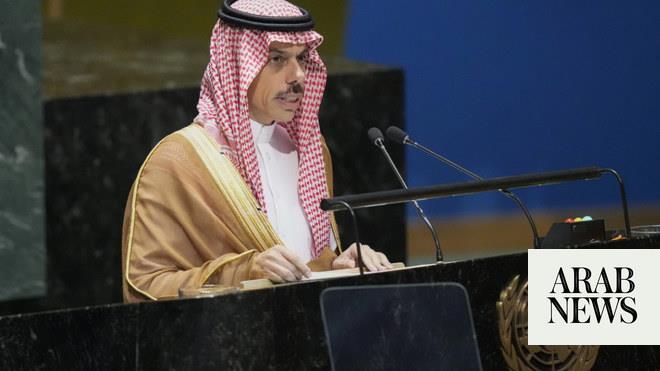
One of the most dangerous malfunctions of the international system is the inability of global leaderships to focus on more than one issue at a time. When it comes to an international crisis like Ukraine, most political leaders in Europe and North America cannot seem to walk and chew gum at the same time. Old hands will argue that this has often been the way, but a strong case can be made that this trend is more acute than ever.
Ukraine, including its knock-on effects, is the crisis of the moment. It is unlikely to get shifted off the top of the charts for some time. It grips political debates and monopolizes media coverage, at least for now. If world leaders were not paying considerable attention, the massive dollops of criticism would be more than justified.
However, if you are Afghan, Syrian, Yemeni, Libyan, Palestinian, Sudanese or from any other war-torn or crisis-affected country, you may wonder what you have to do to get noticed. According to the World Food Programme, a total of 44 million people in 38 countries are teetering on the edge of famine. Ten years ago, Syria was the cause celebre of Western leaders, but interest dwindled and died out. The same could be said for Libya. Attention matters, not least as donor funds are attracted to high-profile crises, not the ones voters do not see on their TV screens and social media feeds.
As far as the Middle East is concerned, it is the European powers that should be paying attention. The US can argue that the region is not in their backyard, but Europe has no such luxury. A scan through the social media posts of foreign ministers of major world powers is highly illustrative. Take Liz Truss, the British foreign secretary. During April, her Twitter account was a never-ending torrent of tweets about Ukraine and Russia. Yemen figured in a British Foreign Office statement on April 1, but with no quote from Truss on the ceasefire agreement. She also condemned the killings of Israeli civilians. I may have missed it, but Syria did not get a mention, nor did Libya, Afghanistan or the Israeli aggression against Palestinians and the desecration of Al-Aqsa Mosque. The accounts of France’s Jean-Yves Le Drian and Germany’s Annalena Baerbock were much the same. Ukraine merits huge attention, but does it have to be to the detriment of everywhere else on the planet?
Why is this? Surely the well-staffed diplomatic services of the permanent members of the UN Security Council could take the load. But this is not the fault of the diligent diplomats. In private, many European diplomats join their Middle East counterparts in bemoaning the lack of attention given to the region by politicians. Senior UN officials are tearing out what is left of their hair in attempts to procure engagement.
Regarding the Middle East, only the Iran nuclear talks have achieved a small degree of top-level political attention. President Joe Biden is involved, though not giving it the attention that Barack Obama did in 2015. Many may not want a renewed deal, but there is precious little thought as to what the strategy should be in the event of no deal being struck, as Iran lingers on the cusp of joining the elite nuclear weapons club.
One of the most striking elements of the latest conflagration over Al-Aqsa and the Israeli crackdown on Palestinians in Jerusalem is the frightening silence from European capitals. The US administration has paid a tad more attention but is still short of what is required. The ingredients for another major war on Gaza and this time the West Bank are ripe.
How about Afghanistan? America’s botched exit last year left the country at the mercy of the Taliban, with millions of Afghans fleeing once more. The huge outcry and justified criticism of this hasty and ill-planned departure might have given the impression that many cared about what happened. Fast forward to now and Afghanistan is a crisis long forgotten. As for Afghans, they endure famine and near-starvation conditions.
Syria might as well not exist for many international leaders. Biden has barely mentioned the country since coming into office. The only time it gets a mention is to remind people what Russian forces did in the country alongside the Syrian regime. Anecdotally, many Europeans I have spoken to assume that the fighting and the crisis is all over, so look stunned when the response comes back that many Syrians consider the current conditions to be worse than at any time since 2011.
The media does not always help, as has been the case in previous conflicts, but there are considerable constraints. Huge deployments of brave and often brilliant war and foreign correspondents to Ukraine, Russia and neighboring countries is quite some exercise. Many journalists have been killed or injured in conflicts, so security is paramount. Doing all of this is costly. After 2011 and all of the coverage of uprisings in the Middle East, one senior editor in London said that, for 2012, there was barely any travel budget. Most outlets cannot afford to cover Ukraine properly and also, for example, cover Afghanistan at the same time. Yet this does not explain it all and ensuring a broader spectrum of stories could assist in creating a balanced picture of global crises.
Public opinion has an increasingly short attention span too. Already one senses, in the US at least, where Ukraine is farther away, a degree of fatigue with the conflict. This may not yet be the case in Europe, where the conflict is on the doorstep and the risks are higher. Yet, after so many wars and hellscape visions from other conflicts, too many have become anesthetized to the horrors of war in distant lands.
Ensuring a broader spectrum of stories could assist in creating a balanced picture of global crises.
Chris Doyle
European countries have so much at stake in the multifarious Middle East hotspots, so it is astonishing to witness their lackadaisical attitude. Is it complacency, believing all this will not affect them as they are secure behind all the barriers they have constructed to keep refugees out and to shield themselves from violent extremism?
The leading members of the international community need to enhance the mechanisms and political bandwidth for dealing with multiple crises. Ignoring conflicts and just praying that somehow they will not get worse is not a strategy. Many European countries could increase their political resources and even the number of foreign and defense ministers so they can handle the extra load. A failure to do so will increase anger and resentment to a dangerous extent and make these crises harder to resolve.
One might also hope that, ultimately, the key lesson from Ukraine is not to allow conflicts to fester for years and even decades. Resolving them matters and is a primary interest for Europe.
Chris Doyle is director of the London-based Council for Arab-British Understanding. Twitter: @Doylech












